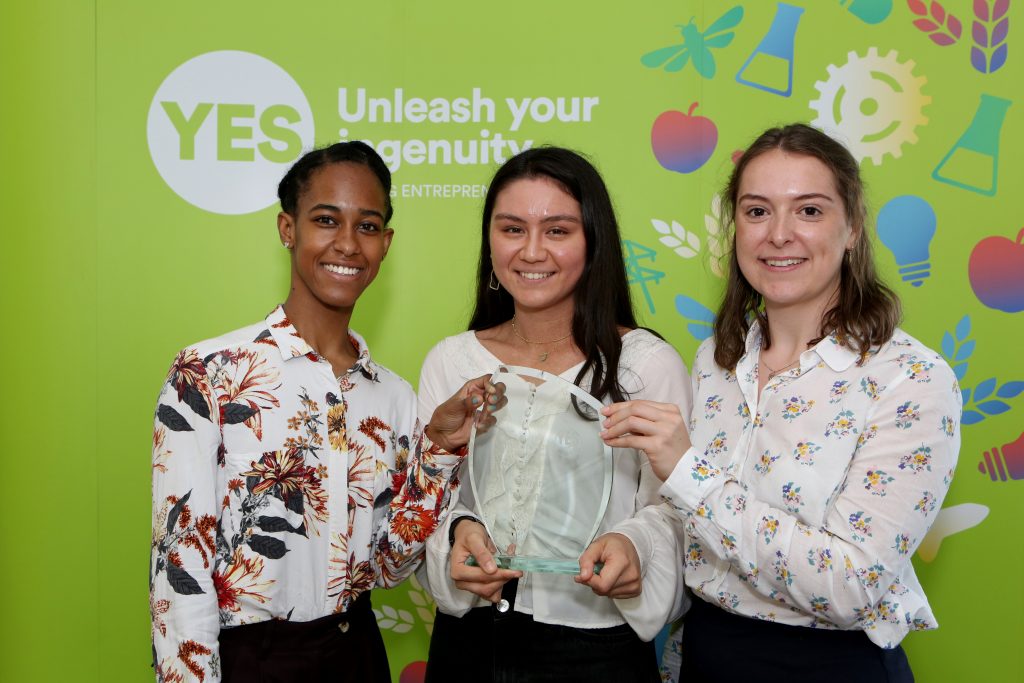
March 29, 2023, by aczjb1
Fostering entrepreneurial talent for women in STEM – Sahattaya Achtzehn
This is a guest blog from Sahattaya Achtzehn, who recently completed her PhD at the Haydn Green Institute.
The underrepresentation of women starting a business within Science, Technology, Engineering and Mathematics (STEM) sectors has long attracted UK Government attention. Nevertheless, the gender gap within STEM entrepreneurship still persists and this gap is relatively larger within the academic environment. According to Griffiths and Humbert (2019), only 13% of UK university spinouts have female founders or co-founders.
In my previous article, I criticised the limited success of Government policy in tackling this problem and pointed towards the gender bias embedded within entrepreneurship and its education. Entrepreneurship is largely perceived as a masculine pursuit – associated with masculine traits and characteristics such as individualism, competitiveness, assertiveness, risk-taking and ambition (Ahl, 2004). Government policy, entrepreneurship research and education are all informed by this masculine construction of entrepreneurship (Treanor et al., 2020).
Enterprise education competitions, typically known as business plan competitions, have been widely promoted as a vehicle for introducing and developing entrepreneurship (Brentnall et al., 2018). The Young Entrepreneurs Scheme (YES Competition), founded by the University of Nottingham and BBSRC, is one of the first business plan competitions aiming to develop commercialisation awareness and the communication skill sets of STEM early career researchers (ECRs: PhD students and post-doctoral researchers) across UK universities (Mosey et al., 2012). The programme has run every year since 1995, with over 6,300 ECRs participating to date.
In my recent academic paper, co-authored with Dr Lorna Treanor and Prof Kevin Amess, published in International Small Business Journal, I tested and compared the impact of the YES Competition between female and male ECRs in relation to:
- Their intentions to start a business (Entrepreneurial Intentions: EI)
- Their self-confidence about their ability to start a successful business (Entrepreneurial Self-efficacy: ESE)
I also incorporated the following three gender barriers that women business owners and scientists face:
- Their perceived negative stereotypes towards themselves as a business owner (Stereotype Threat)
- Their perceptions of work-family life for a business owner (Childcare-Work Conflict)
- Their perceptions of relevant entrepreneur role models (Lack of Role Models)
The results from my research is surprising. Previous research indicates women tended to have lower intentions and confidence about their ability to start a business, and that women would benefit more from entrepreneurship education than men do. However, the competition increased the intentions to start a business of both men and women participants. There is no difference between how they perceived their intentions and abilities to start a business. It might be that these participants voluntarily signed up to the competition due to their personal interest in entrepreneurship; consequently, this group of women participants might already have a degree of intent to start a business (Liñán et al., 2018).
The YES Competition reduced gender barriers to entrepreneurship for all participants; however, this impact is stronger for women. The competition reduced perceived stereotypical threats among women participants which, in turn, eliminated the difference in perceived negative stereotypes in entrepreneurship between men and women. Although women participants perceived lower conflict between childcare and the working life of a business owner, they still perceived child care to be a higher barrier than for men. Nevertheless, women participants were more aware of the lack of role models in business after attending the programme.
Overall, my findings suggest the YES Competition played an important role in reducing young women scientists’ perceived gender barriers to starting a business. A reduction in perceived gender barriers could increase women’s perception of their entrepreneurial abilities and their intentions to start a business. It is clear that issues around childcare support and the lack of role models need to be addressed in entrepreneurship programmes to increase their effectiveness in enhancing STEM women entrepreneurship.
References
Ahl, H. (2004), The Making of the Female Entrepreneur: A Discourse Analysis of Research Texts on Women’s Entrepreneurship, Parajett.
Brentnall C, Rodr.guez ID and Culkin N (2018b) The contribution of realist evaluation to critical analysis of the effectiveness of entrepreneurship education competitions. Industry and Higher Education 32: 405–417.
Griffiths, H. and Humbert, A.L. (2019), Gender and University Spinouts in the UK: Geography, Governance and Growth.
Liñán, F., Ceresia, F. and Bernal, A. (2018) Who intends to enroll in entrepreneurship education? Entrepreneurial self-identity as a precursor. Entrepreneurship Education and Pedagogy, 1(3): 222–242.
Mosey, S., Noke, H. and Binks, M. (2012), “The influence of human and social capital upon the entrepreneurial intentions and destinations of academics”, Technology Analysis and Strategic Management, Vol. 24 No. 9, pp. 893–910.
Treanor, L., Jones, S. and Marlow, S. (2020), Is time up for the hero male entrepreneur? A review of enterprise discourse and its effects, State of Art Review, Enterprise Research Centre, available at: https://www.enterpriseresearch.ac.uk/publications/is-time-up-for-the-hero-male-entrepreneur-a-review-of-enterprise-discourse-and-its-effects-sota-no-34/
No comments yet, fill out a comment to be the first


Leave a Reply